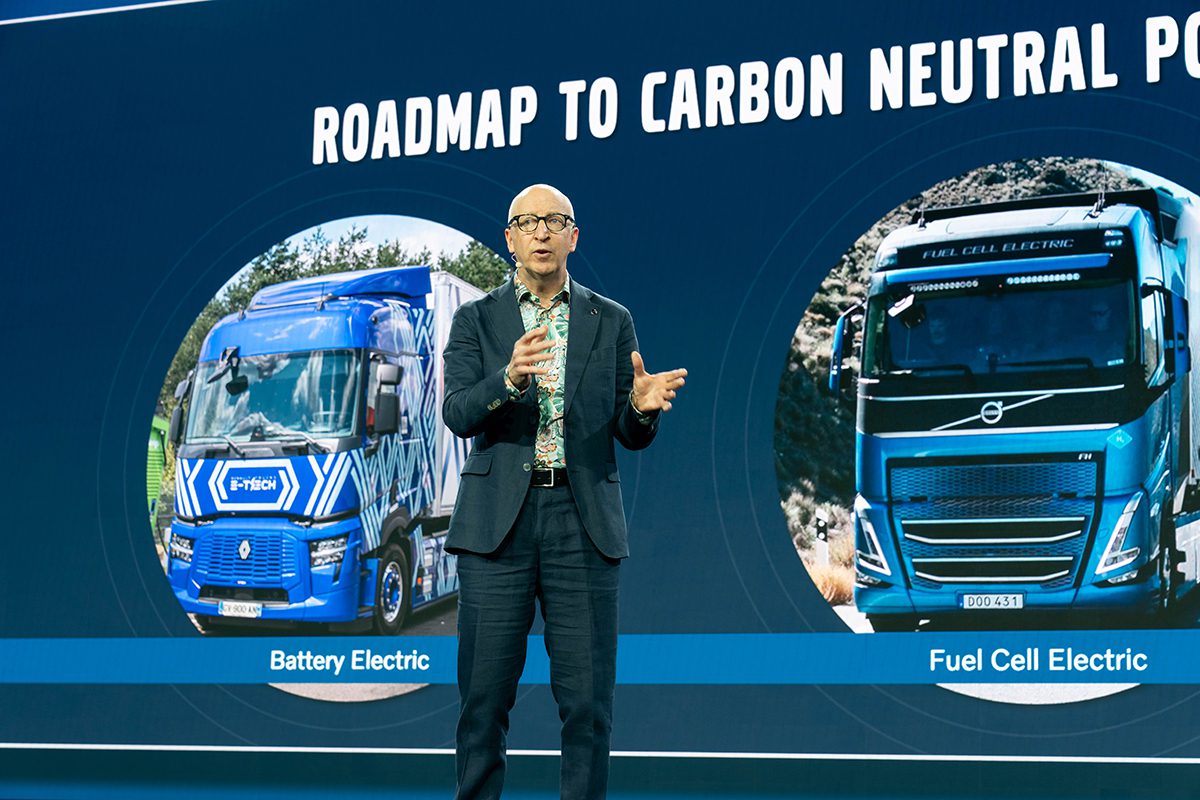Volvo's Multi-Technology Approach to Decarbonization at ACT Expo 2025
Key Ideas
- Volvo Group's CTO emphasized a dual-technology strategy that includes battery electric vehicles (BEVs) and hydrogen fuel-cell systems alongside internal combustion engines powered sustainably.
- The company is dedicated to achieving net-zero emissions by 2040, investing in optimizing ICEs with renewable fuels and advancing hydrogen technologies for long-haul operations.
- Volvo's commitment to full value chain decarbonization extends beyond vehicles to include manufacturing, supply chains, and the circular economy.
- Stenqvist called for collaboration among public and private stakeholders to accelerate infrastructure development and policy support for a collective transition towards a net-zero future.
Volvo Group's Chief Technology Officer, Lars Stenqvist, delivered a keynote address at the ACT Expo, outlining the company's pragmatic and multi-technology approach to decarbonization in commercial transport. Stenqvist highlighted Volvo's commitment to a dual-technology strategy encompassing battery electric vehicles (BEVs), hydrogen fuel-cell systems, and sustainably powered internal combustion engines (ICEs). The company aims to achieve net-zero emissions by 2040 by investing in optimizing ICEs with renewable fuels like HVO, biogas, and potentially hydrogen combustion.
Stenqvist emphasized the complementary nature of BEVs and hydrogen-powered trucks, underlining Volvo's belief in being technology-agnostic to ensure no viable solution is omitted in the decarbonization race. Volvo has already delivered over 3,500 electric trucks globally and leads the market in Class 8 electrification. In North America, Volvo Trucks continues to scale electric truck deployment supported by initiatives like Volvo LIGHTS.
Volvo's focus on hydrogen includes advancements in hydrogen fuel-cell technology through its joint venture, Cellcentric, and hydrogen combustion for longer-range and heavy-duty operations. Stenqvist stressed the importance of hydrogen for flexibility in operations. Additionally, Volvo's sustainability strategy extends to all aspects of its operations, aiming for net-zero not only in trucks but in every facet of the business.
Stenqvist called for collaboration among stakeholders to accelerate infrastructure development, policy support, and cross-industry cooperation. He highlighted the collective responsibility of OEMs, fleets, policymakers, and technology providers in driving the decarbonization agenda forward. Despite challenges, Stenqvist remained optimistic about transforming global transportation collectively toward a net-zero future, urging continuous collaboration and innovation.
